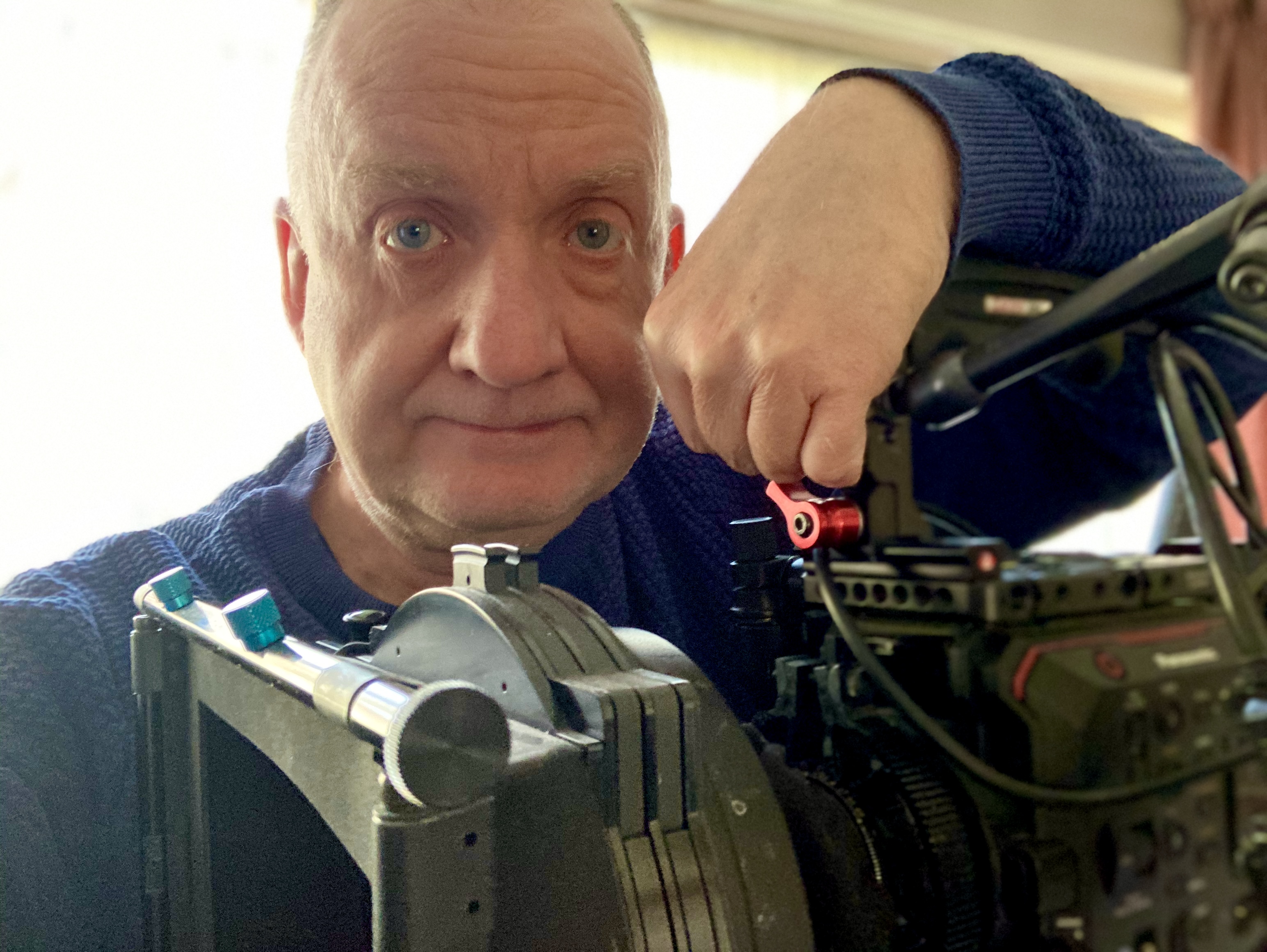ASK & DISCUSS
INDEXGetting Screenplay made into film.
8 years, 5 months ago - James Kearney
Hi, I have two or three Screenplays written up and would like them made into features, just wondering where I would start???
Only members can post or respond to topics. LOGIN
Not a member of SP? JOIN or FIND OUT MORE
8 years, 5 months ago - Paddy Robinson-Griffin
Hi James,
Wow, that's a big question! The TL;DR answer is "Money".
In more detail...shooting a feature film is a very expensive affair, some scripts being more expensive than others. Of lower budget films that make it to TV/cinema/DVD, "about a million quid, give or take" is the total cost. Of that, the cost of the script will be a tiny fee.
The money needs to come from somewhere. That somewhere is a producer who wants to produce your script - and finding them is hard (very hard). In fact that's every writer's trickiest problem.
Who produced a film you saw very similar to yours? Is it a £2M period drama with 2 main characters and few sets, or a £100M lazers, guns, explosions story? Do your research and send scripts to suitable producers and see if they want to option them and develop them and attempt to fundraise on them. You can make it easier for producers if you can show other writing you've done and maybe had published. Everyone is jumpy about risk, so everything you can do to say "this is a safe bet" is good :)
The competition is high. There are literally thousands of spec scripts a year written in the UK alone, and a few dozen films going into production. But each of those films in production started with a script! Find the right producer and whilst it can be a slow process, things do get made.
If you want to self-produce (and many writers have to), get money. Even a gang of willing volunteers need a huge chunk of change to pay for stuff that costs money - costume, locations, unit bases, catering, offices and copying, insurance, kit, lawyers, the lot. You may find it easier to self-produce a short first, even a teaser/taster.
There's a lot of work involved and you may find it helps your writing too, to see how things add up, and how writing decisions impact the production budget. For instance saying "in the rain" means needing a rain machine/weather effects company to guarantee that you have rain...and that's £2000-odd. Making a scene "NITE" can double the cost compared with unspecified time of day.
But no matter what, to go from script to big screen takes real money.
8 years, 5 months ago - James Kearney
Seems really difficult... My uncle has briefed on the long road to success in the Screenwriting business, he's a chief executive with a production group called "One entertainment", he has been trying to help me so far but is very busy doing his own work, Travelling to awards around Europe and the U.S... He basically gave me a little bit of advice, read some of my Screenplays. He says my Screenplays need improving a little which is understandable, me being a newbie in the Screenplay circle. At the moment I think he's in France at the Cannes fest... I've wrote three Screenplays since he told me to improve over Christmas. All are dark comedy. One based on true events.
8 years, 5 months ago - Paddy Robinson-Griffin
@James Kearney
Having someone in the industry in the family is gold dust. Don't ask him so much about reading your screenplays (to properly read a script is 4 hours+ of work), ask him to get you on set as a runner. Being on the inside of the industry will make things 1000 x easier than being an outsider.
I'm not familiar with One Entertainment, although Entertainment One are available really big deal, if it's them. Asking if you can intern at their offices would be a coup. Pretty quickly you might end up getting piles of scripts to read and you can learn from others mistakes.
8 years, 5 months ago - James Kearney
@Paddy Robinson-Griffin
Yeah he's been sending me scripts to read, the best one I read was one called "Spotlight"... There is one problem with getting some hands on work and that's, I have a full time job in Coventry and his offices are in London. I've explained this to him. Kind of a dead end really but I'm just gonna hope I do well in one of these Screenwriting competitions...
8 years, 5 months ago - Glyn Carter
Gonna have to disagree with Paddy here. Feature films are being made for less than £100k. Maybe as little as £20k, if the producer can get a crew together who'll work on expenses-only basis. Of course it has to be written appropriately - small cast, few locations, no stunts etc etc. It won't cut the mustard for cinema release, but it can still get onto VOD platforms. If the starting point - the script - is good enough, just having made a feature gets you further along the career and production path. Producers want great scripts with strong drama, memorable characters, and an original story within a recognised genre. So keep working on the writing, get feedback, enter competitions, and put them up on Script Pitch here. Good luck!
8 years, 5 months ago - James Kearney
Cool cheers, all of my Screenplays are original and low budget. I'm basically starting from the beginning so I'm not looking to make it big at the moment :) I would be chuffed to bits if I could just get a film up and running, An independent Netflix movie is my first massive goal. I've written three full length features that are finished but I've read that you're more likely to get noticed entering short script contests so that's what I'm writing now, A 25 minutes Screenplay.
8 years, 5 months ago - Mark Wiggins
@James Kearney Better to keep in under 15 minutes. To give you inspiration this is a link to Dennis Villanueve's Short "Next Floor." And look how his career has progressed! https://www.youtube.com/watch?v=EmRVKJ8AUtk&feature=share
8 years, 5 months ago - Peter Spencer
Glynn is right; there are terrific low budget films being made, but mostly they cannot get distribution. We made this for less than £100k https://vimeo.com/130571374
8 years, 5 months ago - James Kearney
I've just Googled low budget movies and Blair witch popped up @ 60,000 USD...
8 years, 5 months ago - Paddy Robinson-Griffin
It's possible to make a feature film for $5 and a packet of biscuits, but the chances of it being distributed are basically zero, so it's arguably a waste of good digestives, when it could have made a much better quality short film.
Blair Witch is one of those that makes people groan a little - it was an OK film with modest budget subsidised by everyone involved, then a HUGE year-long very slick marketing campaign. They even had custom web browsers made up. It was early internet, they created the whole "is it real?" vibe around found footage format. The reason people tend to groan is that if you see an investor package containing a reference it's a sure-fire sign that the producer is inexperienced.
In the movie world, people like big numbers because "the most expensive film ever made" is a marketing angle, even if the film (frequently) sucks. To get to those big numbers, they roll all sorts of things into the big number - equity deals for cast for instance (we'll say we paid you $30M, but you must reinvest $28M back into the film and it makes a great headline). That kind of thing. The Blair Witch Project couldn't claim to be huge budget, they got their marketing angle from excluding everything they could, including deliverables costs, deferred costs, etc from the headline budget. It worked, they got publicity.
The reason I suggest feature scripts cost real money to shoot is this - people need to eat. You can get favours for a weekend short film shoot that you simply cannot get for a longer shoot, so you're asking people to turn away other paid work to do yours. That's fine for creative roles, but good luck getting a grip to do that ...and runners need to be fed, accountants need to be paid, legal costs need to be managed, insurances need to be held, etc. Some things you might be able to get away with (single location 2 week shoot at minimum wages - I know, I've done one), but it requires a very specific script written around a single location you can get a deal on. Some things you can't get away with - so if you're shooting 6 day weeks with 11h on camera each day, that's 66 hours a week which is ~£650 ((minimum wage * 66 * NI multiplier * holiday pay multiplier) + a bit for payroll costs). That's the basic legal minimum you can pay for a runner. It's not something you can even opt out of - HMRC audit all productions during the following year or up to 6 years. Can you dodge under the radar by but telling them? Maybe, you could try, but you'll forsake any tax credits. Can you just do private deals to pay a runner £50 on invoice? No, there's a very clear structure around which roles in the eyes of HMRC must be paid on a payroll unless they provide specific proof "Lorimer letter" from the film office in Cardiff.
There's really no way around it, things on feature films just cost more than things on shorts. I know there's a huge industry in aspiration and that loves to perpetuate the "just go and make a feature for £5000" dream - ask the seminar speakers which of their feature films you've seen at the cinema, that's a good guide if you're getting recycled hot air, or real world production experience. If you go to Cannes, you'll see 10,000 or so films for sale. Of those a couple of hundred maybe make it to the cinema. The competition is brutal.
I suggest why compete on that front? People rush to make a feature length film that's in reality just an overlong short. Even most shorts are too long, and that means spreading resources thinner than they need to be. I've come to the belief the way to stand out is to cut your cloth according to your means. If you don't have money, don't scramble to stretch it so thin the holes show - it just guarantees another film in the market in Cannes not getting to cinema. Instead, make a great short and give it away on YouTube, find an audience, find your style. Length alone isn't a virtue, although it is often confused with one.
Sorry, bit of a rambling tirade again.
8 years, 5 months ago - Mark Wiggins
@Paddy Robinson-Griffin Well said Paddy. I get really fed up with people asking me what equipment I have because they don't see me as a cinematographer or as a camera operator but as a source of cheap camera equipment. I have seen posts on here asking for a DOP to work on a short/music video for expenses only and provide all the camera, grip and lighting equipment; expecting the DOP to finance a wannabe director's career. On top of that, the Short/Music Video is not insured because of the lack of budget but "they will be very careful."
I have expensive equipment that I had to pay out for and I want to get that money back and I have to pay insurance premiums that I have to pay. On top of that, I have to eat. Part time directors who finance their ambitions by having a 'proper' job do not seem to appreciate that.
Instead of recognising all the years of skill/experience/talent that I bring to their production, all they see is the camera.
8 years, 5 months ago - James Kearney
I guess it depends on taste, some people are bored of the norm, like me I watched a couple of John Waters movies (very low budget) and thought they were bad taste but hilarious. They turned over millions. Even if you know the film is going to be cheap and nasty but know it can make a big profit,I say go for it...
8 years, 5 months ago - Paddy Robinson-Griffin
Heh heh, I had a look at the spend/gross on A Dirty Shame. I don't believe the $15M estimated budget, probably half or less, and it grossed $1.5M...(USA, so double that for global)
However "grossed" is the theatrical gross - for every £10 in the box office, £1.50ish is tax, and the £8.50 is split between distributor and cinema. The £4.25 the distributor takes is then subject to their fees at maybe 15%, so let's say £3.50 left, then print costs, advertising costs, lobby cards, all the big cardboard rubbish in foyers, press screenings and junkets, poster design, overhead, etc. Once all that lot is paid off £3.50 at a time (and you will likely pay a premium for printing and promotion thanks to some dishonourable dealings) then investors can start to recoup. Investors will typically receive 100% of the first 120% of their investment, then you enter a 50/50 split which means £1.75 from each ticket goes into producers profits. The first tranche of money will be paying deferred fees, bank fees, ongoing overhead for the film, then cast, writer, director, and other profit splits may take another 20%, so the producer's actual profit is maybe £1.30 out of each £10 once all costs have been paid. That $3M gross doesn't even come close to paying off the costs!
I'm not saying this to be a downer, it's intended to illustrate a little for anyone interested in the difference between gross and net, and show even big names can lose money.
That said, yes, there are niches for low cost horror in particular. They're not making anyone rich, but can pay most of their bills if they can get enough international sales quickly enough (there's so much new low cost horror appearing on the market each year you have a tiny window). Probably more profitable are post-pub "bloke" DVDs from the "£2.99 or two for a fiver" petrol station counter distribution, as they are impulse buys. Streaming isn't a route to instant riches, and you're just one more unpromoted film in a list of thousands. If you have a good angle, use the angle to promote heavily and hope you recoup that way :)
8 years, 5 months ago - Jane Sanger
I am very interested in the recoupment costs on low budget movies that go on vod channels or are self distributed. Don't forget you can hire a local cinema to screen your film for one day too that can cost you around £5,000 so you are unlikely to make much profit £5 a seat 100 seats ..? ... but Peter can you tell us what you actually got returned from a year on vod with your film or can anyone else? There are no figures for the public yet but a lot of vod platforms. If it works that might be a way to go for you?????????
8 years, 5 months ago - Peter Spencer
Hi Jane, ultimately the film played in two cinemas and went to dvd - no VOD at all which is a shame, and I had no role/no say in the distribution - though I was not short of ideas. Makes me want to be a producer as well as writer for my next one. Cheers for asking.
8 years, 5 months ago - PHIL WEST
If you can find an audience for your script/film, and you've nurtured a good 'list' of people who want to see your film get made, and you have the right budget for your script, you just might have enough through donations to make and sell your film, you may even want to pay your cast & crew a small nominal fee instead of just expenses... I don't see any reason why you couldn't make your movie and self distribute to your list.
It all comes down to your niche market, I suppose.
I'm not an expert but I don't think you'd have any issues with HMRC as you received donations? Not sure.
In my opinion forget about Theatrical, that's a pipe dream, it's not even worth thinking about. Unless of course your target audience points you in that direction.
This is just my thoughts and don't know if this helps, but like I said I'm no expert.
Good luck.
8 years, 5 months ago - John Lubran
The financial arrangements in film are often hidden from cursory view. Tax avoidance or tax diversion schemes can be very arcane. The identification of actual profit and loss according to standard accounting methods can hide the benefits derived from the production budget itself. People, organisations and businesses get paid from the budget before any profits get calculated.
Box office figures don't take into account median and long-term sales or other distribution vectors. The big studios enjoy the advantages of having a long view with their business model whereby they usually make a profit from even their biggest box office flops over ten years. TV, DVD, streaming, re-runs etc., It's no good trying to make a definitive view point from things like Blair Witch; their sixty thousand initial budget was then dwarfed by the million dollar marketing and distribution budget and the six hundred thousand dollar post production fix. There's all sorts of money making going on behind the scenes that media reporters have no clue about. It's a creative business enterprise in more ways than is shown on the screen.
8 years, 5 months ago - Richard Anthony Dunford
@Paddy Robinson-Griffin Great sums Paddy; very interesting to see the producers return once you break it down.
I think piracy via the download route has had a big impact on why Hollywood tend to favour the massive budget event movies; they through it all into making money of the theatrical release.
The 'man on the street' will probably only shell out to watch a big blockbuster at the cinema too and wait for low budget ones to come out on DV on come on TV.
8 years, 5 months ago - Adam Ethan Crow
I love how everybody sites The Blair Witch. The film actully ended up costing between $500,000 and $750,000 before it hit the screens. The studio then spent $25 million marketing the movie - and that was at the time bringing something we'd not seen befoer to the screen - Found Footage.
8 years, 5 months ago - Peter Spencer
Quite correct, they threw a fair amount at it to get it to the mass market. There are some examples of tiny budget films 'making careers', for example the self-funded/kickstarter funded 'Blue Ruin' but that sold for around $400k to a distributor and they had to spend money to get it out there.
8 years, 5 months ago - Adam Ethan Crow
I've worked with Paddy, he has an extesnive knowlege of this indsutry and is my touchstone for stuff like this. The best way to view box office is, a film basically needs to make three thimes its budget to break even. Remember the studio only gets 45% of what it takes at the box office.
8 years, 5 months ago - James Kearney
I personally think with good scriptwriting, storyline and actors anything is possible ;)
8 years, 5 months ago - Mark Wiggins
I've worked on a few low budget indie features in my time and, it seems to me, the ones that get distribution all have one thing in common. That is they all have A/B List actors in them. Even if its only a cameo so that it doesn't involve too much work on the actors part. The A/B Lister is then used as a selling point for the movie.








